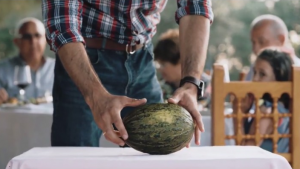
Fresh Times – Edition 4, 2018
Freshfel Europe collects this information from different sources to the best of its knowledge. Freshfel Europe is in no way responsible for the content of the articles used. For any questions or further information, please contact Nicola Pisano or Nelli Hajdu at the Association’s Secretariat.
Editor’s Note: Back to school and work!

Does anyone remember the start of summer this year? This one’s been a long one and we hope you have got to enjoy an abundance of seasonal summer fruits and vegetables – it’s our favourite time of year for grilled vegetables and fruit salad. Now it’s back to school and back to business for most. This school year the fruit and vegetable teaching continues with the EU School Fruit and Vegetable Scheme and the 5-a-day campaign in many countries across Europe. New innovations are always around the corner though encouraging children and adults to have a balanced diet including lots of fresh fruit and vegetables. In this edition we look at a new fruit and vegetable based app, a junk fruit campaign for all those snack addicts out there, salad pick and mix in supermarkets and melons to remind you of summer times among others. Watch this space for more Fresh Times promotion inspiration in the next edition to be published at the end of October 2018.
Spain: The language of F&V
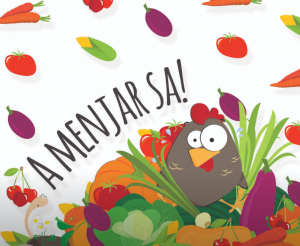
The new school year means a new EU School Fruit and Vegetable Scheme! This year early childhood and primary schools in Communitat Valenciana are embarking again on their successful A MENJAR SA! Campaign. The fruit and vegetable school scheme has already reached 800 schools and more than 171,000 students in previous years. The campaign involves the distribution of seasonal and local fruit and vegetable to students along with educational material to encourage students to consume more fruits and vegetables. This includes 600 workshops on the seasonal nature of fruits and vegetables grown in the surrounding area, where students can make their own seasonal calendar of Valencian fruits and vegetables with all products’ names in Spanish, Valencian and English. During the workshops students are encouraged to explore the different colours, smells, tastes, shapes, and ways of growing and eating different fruits and vegetables. Students also get to take home support material so that they can bring what they have learnt into the home environment.
UK: 1 carrot, 2 carrots, 3 carrots, 4!
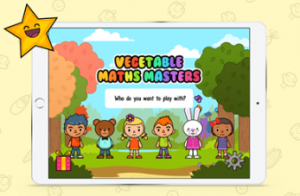
Are all parents out there listening? Back to school also means back to school nights dinners. A new free app, called Vegetable Maths Masters, has been released to support children’s learning about healthy eating and maths. While playing simple maths games on the app children learn about fruits and vegetables and the importance of healthy eating at the same time. After choosing a character which they ‘feed’ vegetables to throughout the activities, children learn about the names of fruits and vegetables as they play simple maths games. The character is happy and becomes animated when the child answers maths problems correctly and is fed with vegetables. The character also gives verbal feedback to encourage vegetable consumption. The app has three levels for children aged 3-4 years, 5-6 years and 7+ years. The app is based on psychological research on how to increase interest in fruit and vegetables and eagerness to try them such as exposure to real images, token rewards and feeding other characters.
Germany: Lidl supports 5-a-day
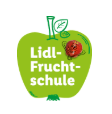
This school year Lidl is again supporting the popular 5-a-day campaign through the Lidl Fruit School, which has been running since 2016 throughout Germany. This year 200 third and fourth year classes will participate in the Lidl Fruit School. At the Fruit School qualified nutritionists visit classes and teach students how to balance their diet with healthy fruits and vegetables in a fun and engaging way. For example students get to prepare simple recipes to demonstrate how easy it is to eat five portions of fruit and vegetables per day. This includes healthy fruit skewers and smoothies – recipes that they can replicate at home with their parents. The Fruit School provides students with a lunchbox with which they can bring their fresh fruit and vegetables to school with every day. To prove their qualification at the Fruit School, participating students receive a certificate to show their qualification in fruit and vegetable and healthy eating knowledge and 5-a-day information materials to take home.
Belgium: Junk fruit not food
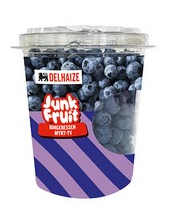
It’s the age old debate between parents and their children, junk fruit not food. Wait, junk fruit you say? Yes the Belgian supermarket Delhaize has recently launched a line of alternative fruits and vegetables to junk food called Junk Fruit. All fruits chosen to be part of the promotional campaign can be enjoyed as a snack and don’t require preparation. This includes seedless grapes, blueberries, kiwifruit, apples, bananas, raspberries, currants, blackberries and plums. In this way the campaign encourages consumers to substitute unhealthy products that they would normally snack on for fruit snacks. In addition to this, Junk Fruit, available for only two weeks in August, has a promotion valid on all products from the range with the second product for half price. If this wasn’t enough to convince you to snack on Junk Fruit Delhaize has teamed up with Waze, a GPS app, so that when you’re stuck in traffic you can see where the nearest Delhaize is to buy your Junk Fruit!
The Netherlands: A world of salad
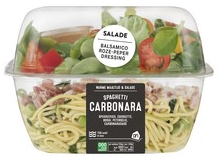
You pick up your shopping basket as you enter Albert Heijn and head to the convenience section looking for lunch. You’re looking for a healthy, tasty and convenient salad to eat on the go and are ready to dig deep amongst the shelves to find something. But what do you discover instead? A whole new world of salads like you’ve never seen before! Albert Heijn has created a four step system to choosing your own custom salad. Step one: choose between fresh, mild or spicy leaves. Step two: add your additional fruit or vegetable of choice. Step three: choose a topping such as croutons, beans or maize mixes. Step four: choose your dressing. This new salad system is designed to be all about flavour and colour to encourage consumers to choose healthy convenience food options. The new salad system also allows those looking for convenience products to choose something that they would normally make at home themselves, thereby increasing consumer satisfaction with their healthy meal.
Global: Melons at home & on holiday
While some lucky people are still making the most of Europe’s extended summer season this year, for many they’re heading home and gearing up for back to school, and let’s admit, back to work. If that’s you, don’t worry the holiday season fresh produce will also follow you home. This summer Rijk Zwaan has launched an online campaign to promote the Piel de Sapo melon variety. To conjure up holiday memories, pick up a Piel de Sapo, head home and go onto Rijk Zwaan’s Love my Salad website for melon recipe inspiration that will make you feel as though you’re back at your beach paradise. If that isn’t enough for you to beat the back to school/work blues Rijk Zwaan is also promoting their first variety in their Beach melon concept. This Beach melon has an intense flavour and extended shelf life in comparison to other melons, which will make you think of the sun, sea and warm beach sand between your toes with every bite.
Poland: Happiness in F&V

What is the secret to a happy life? Eating plenty of fruit and vegetables will sure help you to maintain a healthy one! The campaign ‘Warzywa i owoce – na szczęście!’ (‘Vegetables and fruits – Happiness!’) tries to answer this question. The aim of the national campaign is to encourage people to enjoy healthy eating with fruits and vegetables that are not only tasty but can improve mood and evoke positive emotions. While the emphasis of the campaign is on Polish fruit and vegetables, the campaign is centred on attaining good overall wellbeing. This involves recommendations from a psychologist, sports dietitian and personal trainer on how to have a balanced diet rich in fruits and vegetables and how to be physically active with a good mental outlook. “Recipes for luck” are available to help consumers as well as a Polish seasonal fresh produce calendar. As the campaign is about wellbeing and lifestyle, its messages focus on maintained effort and consistency over time rather than going on an all-out short-term fruit and vegetable diet.
Italy: Freshness from Europe

Europe is not just a cultural and historical hub, it’s also the source of high quality fresh fruits and vegetables! Throughout the last three years the ‘Freshness from Europe’ project, funded by the EU, the Italian government and CSO, has raised awareness across the globe of the high quality and fresh products that Europe’s fruit and vegetable sector has to offer. This includes in the USA, Canada, Japan, the Emirates and China. While the project has been highly successful in increasing Italian exports to the target countries, the project is now coming to an end and has just taken part in its final exhibition outside of Europe at the Summer Fancy Food in New York. The project had a total budget of 5.3 million euros and involved companies representing over 60% of the Italian fruit and vegetable supply. The promotion activities have included information campaigns to specialised media and at sales outlets, participation at trade fairs, B2B meetings and information workshops.
UK: Hail a Chiquita cab

“Oh look there’s the Chiquita bus!” is now a common everyday phrase in London that you hear when you’re out and about. However have you heard “Oh look there’s a Chiquita taxi!” yet? Chiquita is now rolling out their latest promotion campaign called ‘We are bananas’ to further raise awareness of Chiquita bananas. This time though they’re not targeting the regular commuter, they’re targeting mothers and millennials in particular. Are you an average millennial with no car? How often do you decide to take the tube after a late night stint at the local restaurant? Wouldn’t you prefer to take a taxi? Or wait, even a free taxi? To kick-start the promotion campaign, Chiquita offered free rides across zones one and two in Hackney Carriages that featured the Chiquita bananas for one day only. There was only one catch though, you had to use a Chiquita banana as payment. We don’t know about you, but the yellow taxis sure stand out amidst all the black cabs.
Germany: Tomato paradise
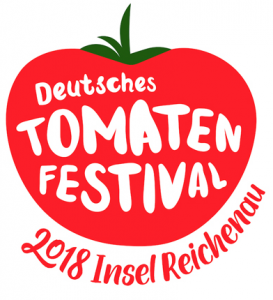
Fresh ripe tomatoes are synonymous with summer in Europe, but have you been to a tomato festival where the humble tomato is celebrated in its entirety? This summer the ‘Deutsche Tomatenfestival’ (‘German tomato festival’) 2018 did just that and opened its doors for the first time to people to the world of tomatoes on the beautiful island of Reichenau. The focus of the festival was the pleasure and enjoyment of eating tomatoes. An open-air kitchen allowed festival-goers to experience the smells and delights of tomato dishes being prepared. Local tomato varieties were on display, and star chef Jochen Fecht from the ‘San Martino’ restaurant prepared delicious tomato dishes for guests to try. Tomato experts were also on site to help you explore the different tomato varieties and how tomatoes are grown. If you chose to, you could pay for a bottle with your admission so that you could participate in making your own tomato sauce to take home with you.
Korea: A banana a day
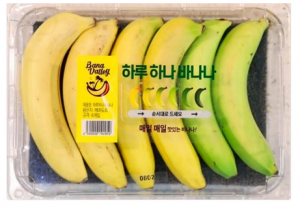
It’s the latest fruit and vegetable hit to go viral, but no it’s not a song-and-dance repertoire, it’s the ‘One a Day Banana Pack’ from Korea. The banana pack went viral over the internet due to its simple but revolutionary concept of combining an array of bananas in one pack all at different maturation stages. This allows the buyer to consume a ripe banana every day without the disappointment of facing a green banana. And yes, everyone was thinking why didn’t I think of that? This concept is already available in the UK and the Netherlands, but mostly in ‘weekend packs’ and not for the full week. Why you ask? It has to do with increased costs, especially labour and packaging costs, to be able to provide a full set of the fruit at different stages of ripening. Another factor for consideration is food waste – many consumers may prefer a mix of fruits and not bananas the whole week. We’ll leave it here for your further analysis.

